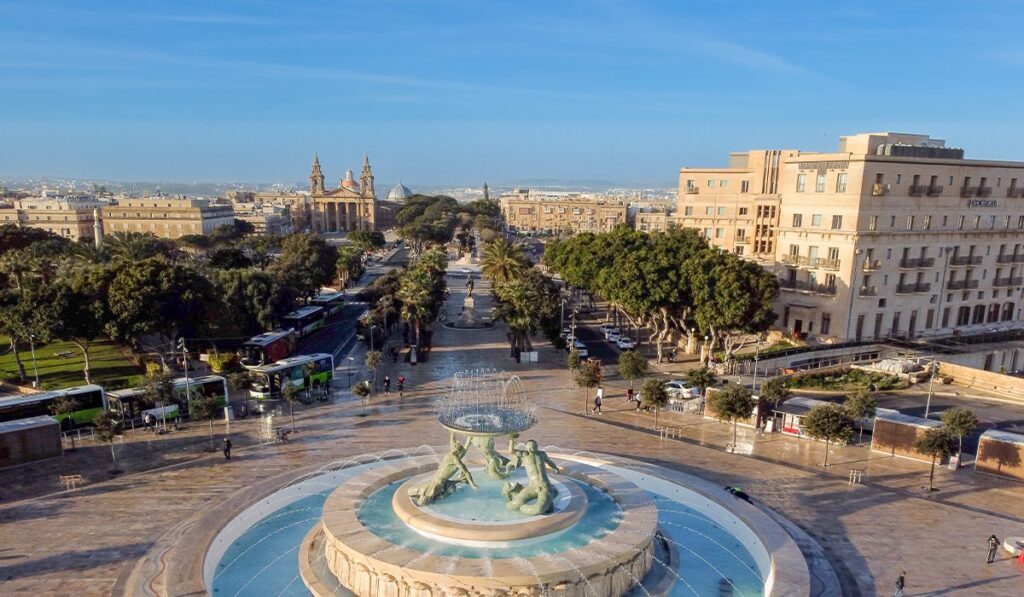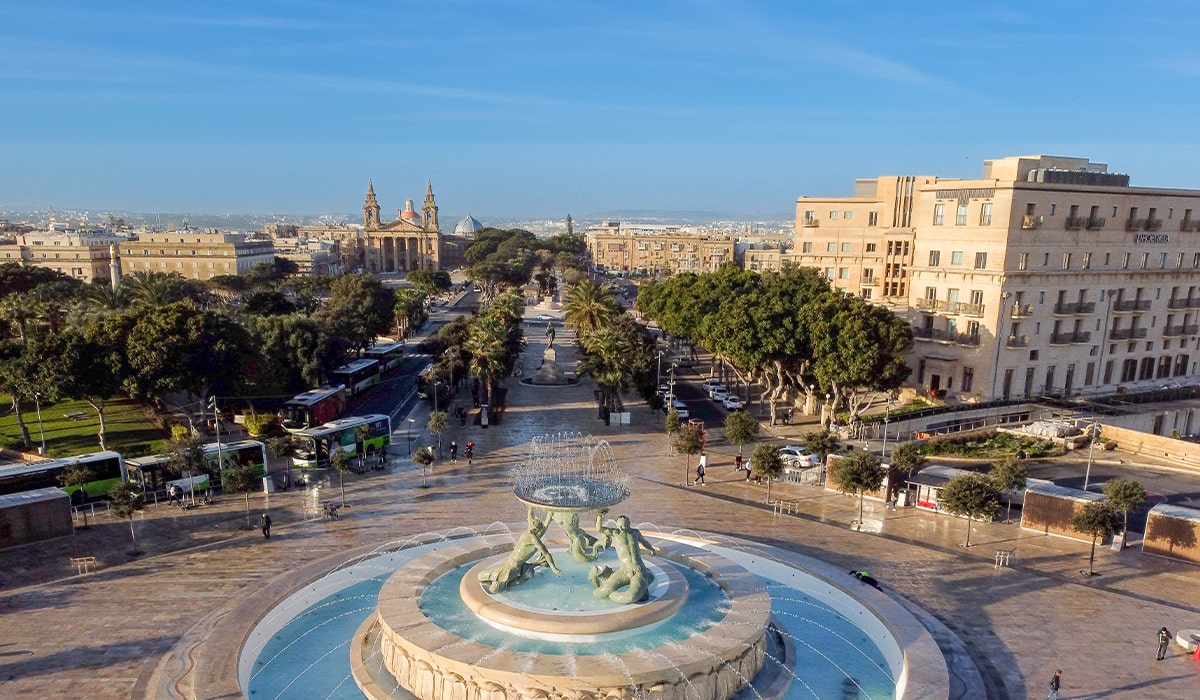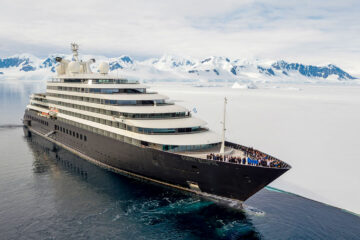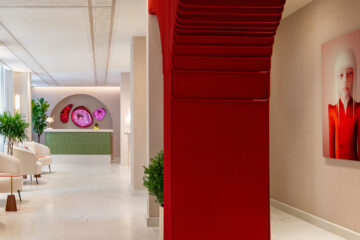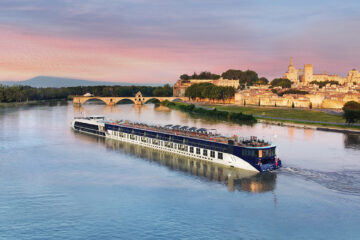Discover The Enchanting Beauty Of Malta
Embark on a quest of self-discovery in a place where love, culture and rich history will ignite your soul.
I never imagined that my love for writing would take me on beautiful adventures across the globe. When I got the news that I’d been assigned to write about a one-week trip to Malta, I was overtaken by a combination of excitement and nervousness — I had never visited the tiny island nation and had no idea what to expect.
What is the weather like? How is the food? What is there to do? What languages do they speak? Truthfully, at that point, if someone had asked me to point to Malta on a map, I would not have known where to look.
Little did I know that although Malta is one of Europe’s smallest countries, it is one of the most beautiful countries in the world, one that naturally rewards exploration and curiosity with the discovery of your truest passions. From the moment I stepped onto the island and the rays of the Mediterranean sun hit me, I was overwhelmed with happiness and serenity. As I walked along the cobblestone streets, listening to the sounds of the neighbourhood, observing the energy of the locals and gazing at the villas that overlooked the water, I soon realized that Malta is one with la dolce vita.
However, Malta is more than exquisite food, gorgeous sunny weather and rustic architecture. It is a country with a forgotten yet profound history that has defined its identity and forged its all-or-nothing attitude. A British colony before gaining its independence in 1964, Malta still holds a tragic record as the most heavily bombed country in the world: 16,000 tons of bombs were dropped on it between 1940 and 1943 during the Second World War. It has the highest density of UNESCO World Heritage Sites of any nation-state anywhere. Throughout the centuries, its islands have been conquered by the Phoenicians, Romans, Greeks, Arabs, Normans, Sicilians, Swabians, Aragonese, Knights Hospitallers, French and British.
The Maltese are in a never-ending battle to preserve the unique culture that has arisen from this intense history, a multicultural mix that is evident everywhere – from the classic dark features of the Maltese people to the complexities of the Maltese language to the country’s cuisine and architecture to the values it stands for. My travels began at the multi-award-winning Phoenicia Malta, a five-star hotel located just outside the lively capital of Valletta and surrounded by gorgeous gardens. I was immediately embraced by its warmth and its high level of bespoke accommodations.
During my stay I learned that for the past 75 years stars, socialites and the crowned heads of Europe, including Queen Elizabeth II, have been guests. In fact, before being crowned, Princess Elizabeth and Prince Philip lived in Malta for three years and are remembered for their joy of dancing in the great ballroom of the Phoenicia Malta.
Dining at Phoenix, the Phoenicia’s restaurant, was a luxurious experience from décor to cuisine. As the hostess walked me to my table, I was serenaded by piano tunes accompanied by smooth vocals. Dishes like fiori di zucca fritti (fried zucchini flowers), swordfish carpaccio and grilled lampuki (dolphinfish) beautifully showcased the restaurant’s culinary repertoire.
The next morning, I enjoyed a traditional Maltese coffee on my balcony specially prepared by the staff as I watched the sun rise over the town of Floriana. At that moment, I decided to make each day my masterpiece.
My days would consist of strolling through the beautiful Upper Barrakka Gardens, wining and dining at rustic wineries like Ta’ Betta Wine Estates and San Niklaw Winery, immersing myself in Malta’s history of survival by going through the tunnels of Underground Valetta, and gazing at the most beautiful works of art by Mattia Preti and Caravaggio at St. John’s Co-Cathedral.
In the evenings, dining at distinguished Michelin Star restaurants like the ION Harbour by Simon Rogan at the beautiful Iniala Harbour House Hotel and the de Mondion Restaurant became the standard. Both provided extraordinary dishes and scenic views from their rooftop terrace vantage points. Above all else, the level of exceptional service left me speechless. The staff functioned as a synchronized unit, highly sensitive to a guest’s every need, trained not just to serve but to care – to the point that when the evening breeze became a bit chilly a server swiftly appeared with blankets to keep guests warm before they even had to ask. That, in a nutshell, is the Maltese way. Not doing things out of obligation but out of consideration.
Nevertheless, many Maltese people are disheartened when it comes to their cultural identity. Its diversity and history of foreign invaders have left them asking: Who are we? What is pure Maltese culture? What do we stand for as a country? Although these are difficult questions to pose, let alone answer, my response is: the people of Malta have not allowed their country’s complicated past to destroy them. Instead, they have used it to create a better future. The values that Malta stands for are reflected in their eagerness to welcome travellers from all over the world, their gastronomy and agricultural practices, their preservation of art and history and, above all else, their pride in living in the moment with gratitude.
Although my Malta trip came to an end, my journey did not stop there. I had the incredible opportunity of flying with Turkish Airlines throughout my travels. From the delicious in- flight dining to the personable flight staff, the flight was the cherry on top and overall difference- maker, which put my frantic airport mind at ease. But the best part of flying with Turkish Airlines is its exciting stopover in Istanbul.
The Istanbul Stopover program offers passengers connecting via Istanbul the opportunity to explore the ancient capital of the Eastern Roman (Byzantine) Empire and the Ottoman Empire, which is renowned for its blend of contemporary culture and ancient traditions. My travels were enriched by discovering the city’s history, cuisine and cultural life as I visited the Galataport, the Ancient City of Ephesus and walked through the Grand Bazaar. When I reflect on all the incredible moments I experienced and the beautiful people I met during my travels, it is difficult to describe how that one week will forever resonate in my heart.
The greatest lesson I learned was that life is not a problem to be solved but a gift to be experienced to the fullest. Life is beautiful when it is the purest of things that bring you happiness – something as simple as watching the sun slowly rise with a momentous glow as if the sky has cracked open into heaven or giving the ones you love a spontaneous hug for no other reason than because you love them. Live life beautifully and travel with no regrets.
@visitmalta
@turkishairlines
@phoeniciamalta
@inialaharbourhouse











































































